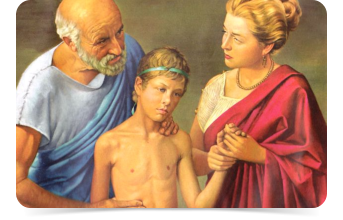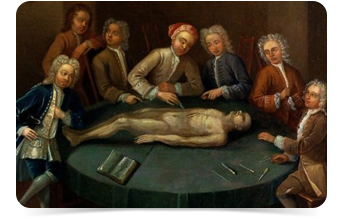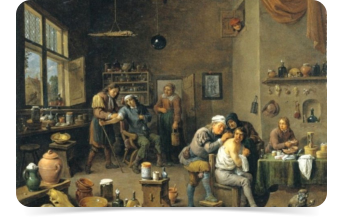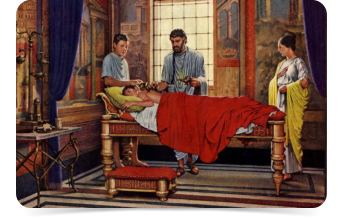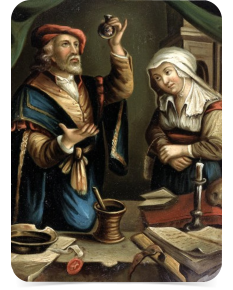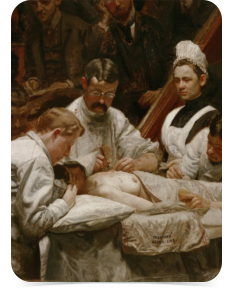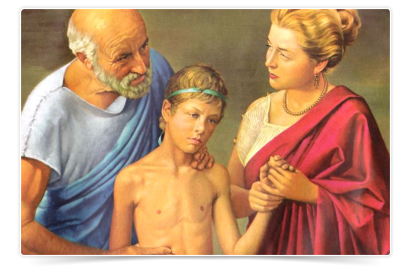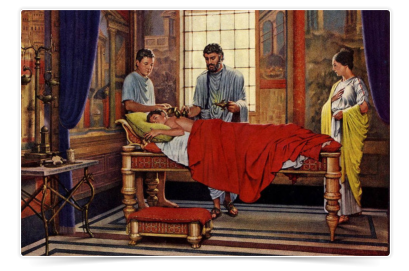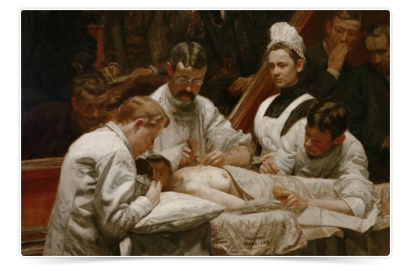Get in touch
Contact PDIU
Book a Visit
copyright © 2021 Pro Deo International University

Security
Privacy Statement
Reporting Security Issues
Masters in History of Medicine
From
ancient
times
through
to
the
present
date,
the
history
of
medicine
shows
us
how
different
cultures
have
changed
in
their
methods
to
illness
and
disease
and
health
in
general.
It
was
the
Indians
who
first
introduced
the
concepts
of
medical
diagnosis,
prognosis,
and
advanced
medical
ethics.
We
have
also
seen
different
medical
traditions
Babylon,
China,
Egypt,
Ancient
Greece
and
Rome.
In
ancient
Greece
in
the
5th
century BC, the Hippocratic Oath was written.
This
Oath
is
still
the
one
that
physicians
swear
upon
entry
into
the
profession
today
It
was
in
the
Middle
Ages,
that
surgical
practices
received
from
the
ancient
masters
were
improved
and
then
systematised
in
Rogerius's
The
Practice
of
Surgery.
Universities
began
systematic
training
of
physicians
around
1220
AD
in
Italy
and
it
was
later
brought
to
an
art
form
by
the
Knights
of
St.
John
in
Malta
at
the
Sacra
Infermeria, the Most Modern hospital of its time.
Course Objectives
This
course
will
allow
you
to
develop
an
in-depth
understanding
of
how
healthcare
and
medicine
have
developed,
how
health
has
changed
and
the
societal
impacts
of
these
changes
across
the
world
in
a
variety
of
historical
contexts.
The
course
will
take
you
from
classical
antiquity
to
the
21st
century,
covering
classical
antiquity,
medieval,
early
modern
and
modern periods.
Training
in
historical
research
methods
and
conceptual
and
methodological
approaches
to
the
history
of
medicine
will
also
be
provided
as
part
of
the
course.
This
course
will
enable
the
student
to
specialise
in
the
history
of
medicine,
led
and
supported
by
internationally regarded historians.
We will explore historical, literary, social and cultural perspectives on
illness and health, general wellbeing, issues of public health and the
history of medicine. We'll examine the links between history, the
humanities and policy to gain advanced skills in analysis and critical
reflection.
Website
Reporting Website issues

Get in touch
Contact PDIU
Book a Visit
Security
Privacy Statement
Reporting Security Issues
Website
Reporting Website issues

Masters in History of Medicine
From
ancient
times
through
to
the
present
date,
the
history
of
medicine
shows
us
how
different
cultures
have
changed
in
their
methods
to
illness
and
disease
and
health
in
general.
It
was
the
Indians
who
first
introduced
the
concepts
of
medical
diagnosis,
prognosis,
and
advanced
medical
ethics.
We
have
also
seen
different
medical
traditions
Babylon,
China,
Egypt,
Ancient
Greece
and
Rome.
In
ancient
Greece
in
the
5th
century BC, the Hippocratic Oath was written.
This
Oath
is
still
the
one
that
physicians
swear
upon
entry
into
the
profession
today
It
was
in
the
Middle
Ages,
that
surgical
practices
received
from
the
ancient
masters
were
improved
and
then
systematised
in
Rogerius's
The
Practice
of
Surgery.
Universities
began
systematic
training
of
physicians
around
1220
AD
in
Italy
and
it
was
later
brought
to
an
art
form
by
the
Knights
of
St.
John
in
Malta
at
the
Sacra
Infermeria,
the
Most
Modern hospital of its time.
Course Objectives
This
course
will
allow
you
to
develop
an
in-depth
understanding
of
how
healthcare
and
medicine
have
developed,
how
health
has
changed
and
the
societal
impacts
of
these
changes
across
the
world
in
a
variety
of
historical
contexts.
The
course
will
take
you
from
classical
antiquity
to
the
21st
century,
covering
classical
antiquity, medieval, early modern and modern periods.
Training
in
historical
research
methods
and
conceptual
and
methodological
approaches
to
the
history
of
medicine
will
also
be
provided
as
part
of
the
course.
This
course
will
enable
the
student
to
specialise
in
the
history
of
medicine,
led
and
supported
by
internationally regarded historians.
We will explore historical, literary, social and cultural
perspectives on illness and health, general wellbeing,
issues of public health and the history of medicine. We'll
examine the links between history, the humanities and
policy to gain advanced skills in analysis and critical
reflection.


- Department of Archaeology
- Faculty of Arts
- Caring Profession
- Development
- Engineering
- General Certification Courses
- ICT
- Hospitality and Tourism Studies
- Languages
- Management and Business College
- Faculty of Medicine
- Institute of Medicine and Surgery
- Institute of Medical Emergency Education
- Diploma for EMT - Paramedics
- Diploma in History of Medicine
- Masters in Emergency Medicine Management
- Masters in Healthcare Economics and Financial Management
- Masters in Healthcare Management
- Masters in History of Medicine
- Masters in Psychiatry
- Masters in Radiopharmaceutics
- Masters in Tissue Engineering and Regenerative Medicine
- Faculty of Theology and Philosophy
- Veterinary Sciences
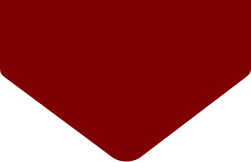
scientia potentia est
Pro Deo
International University
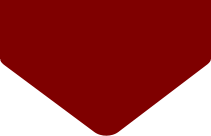
Pro Deo International
scientia potentia est







